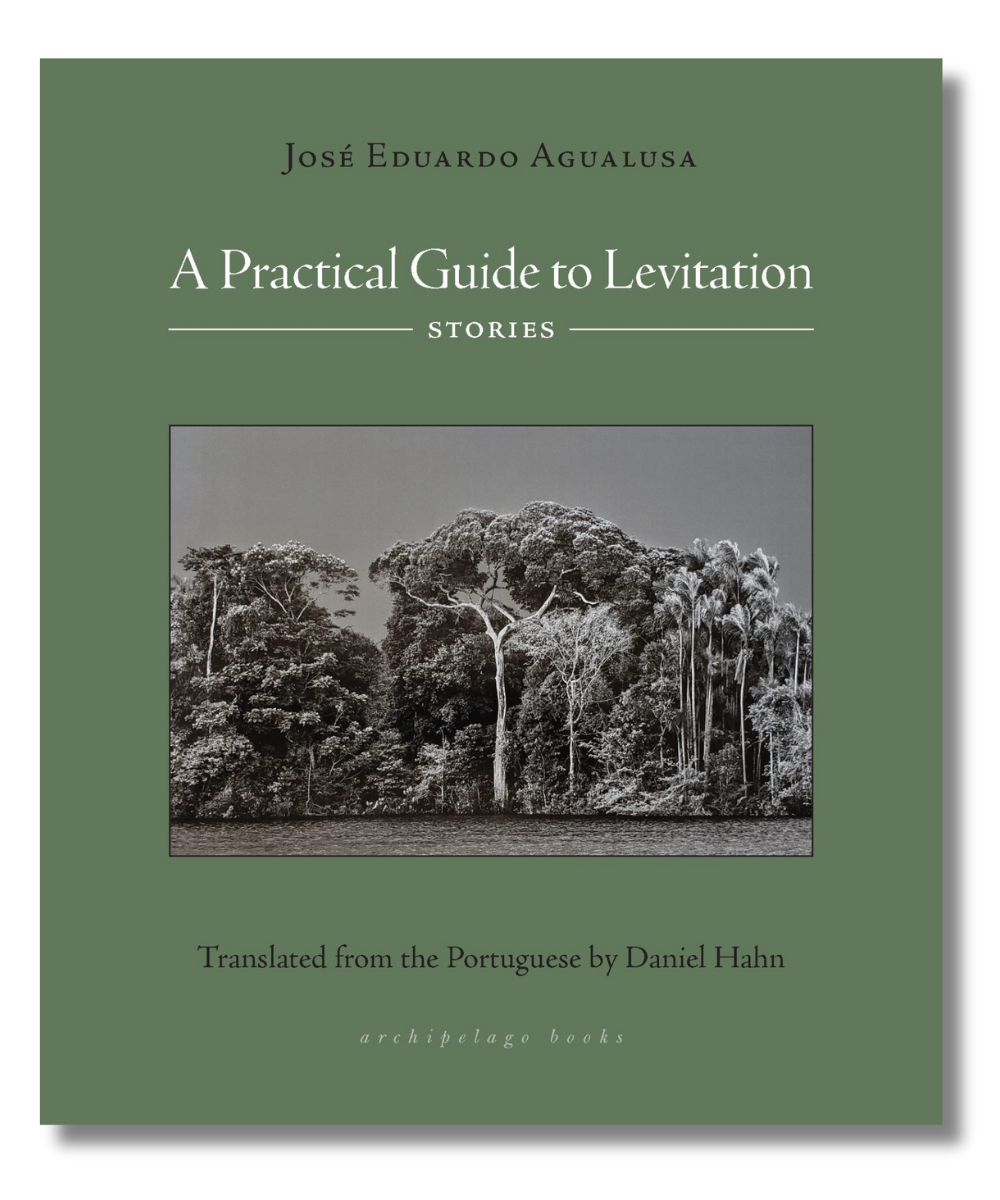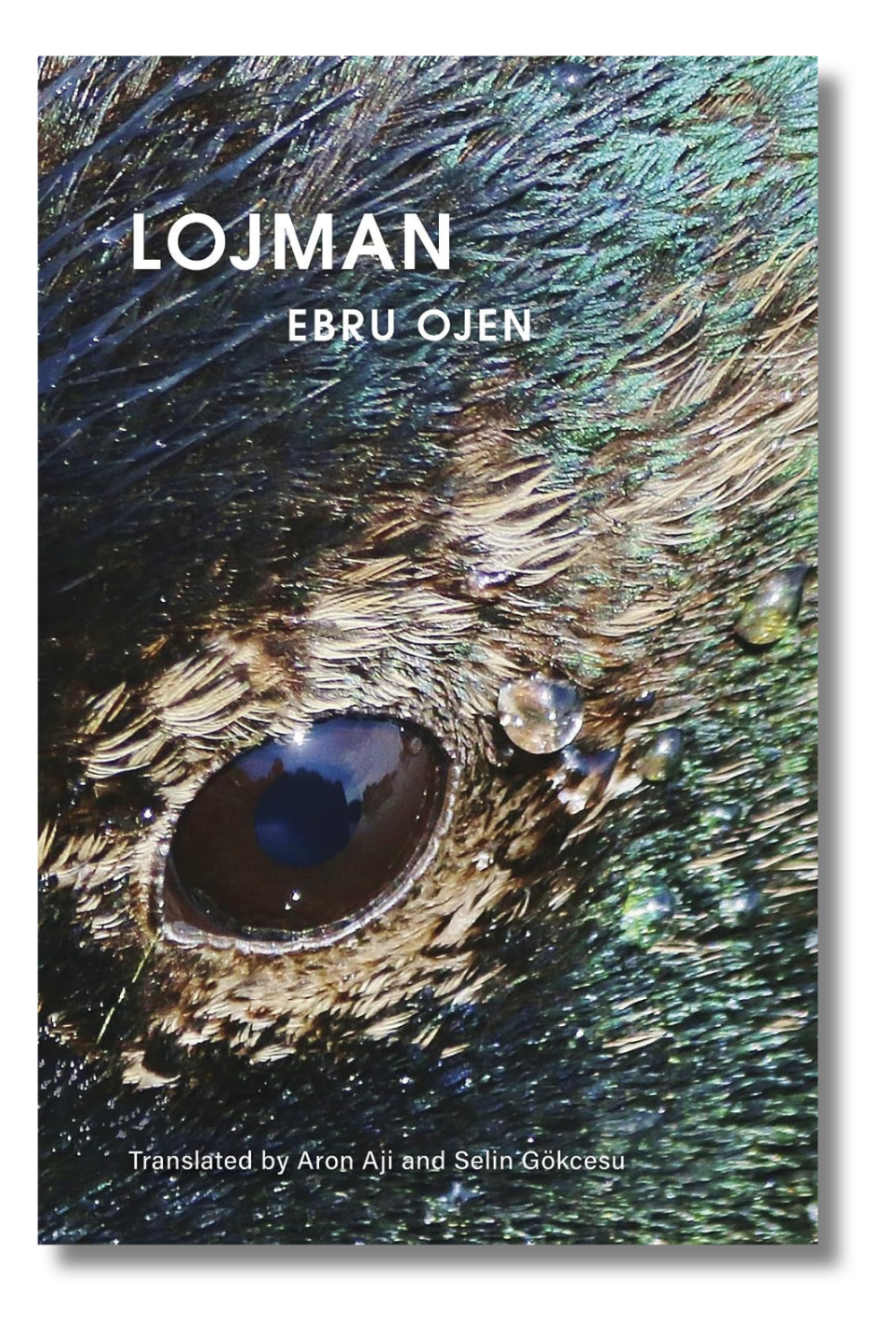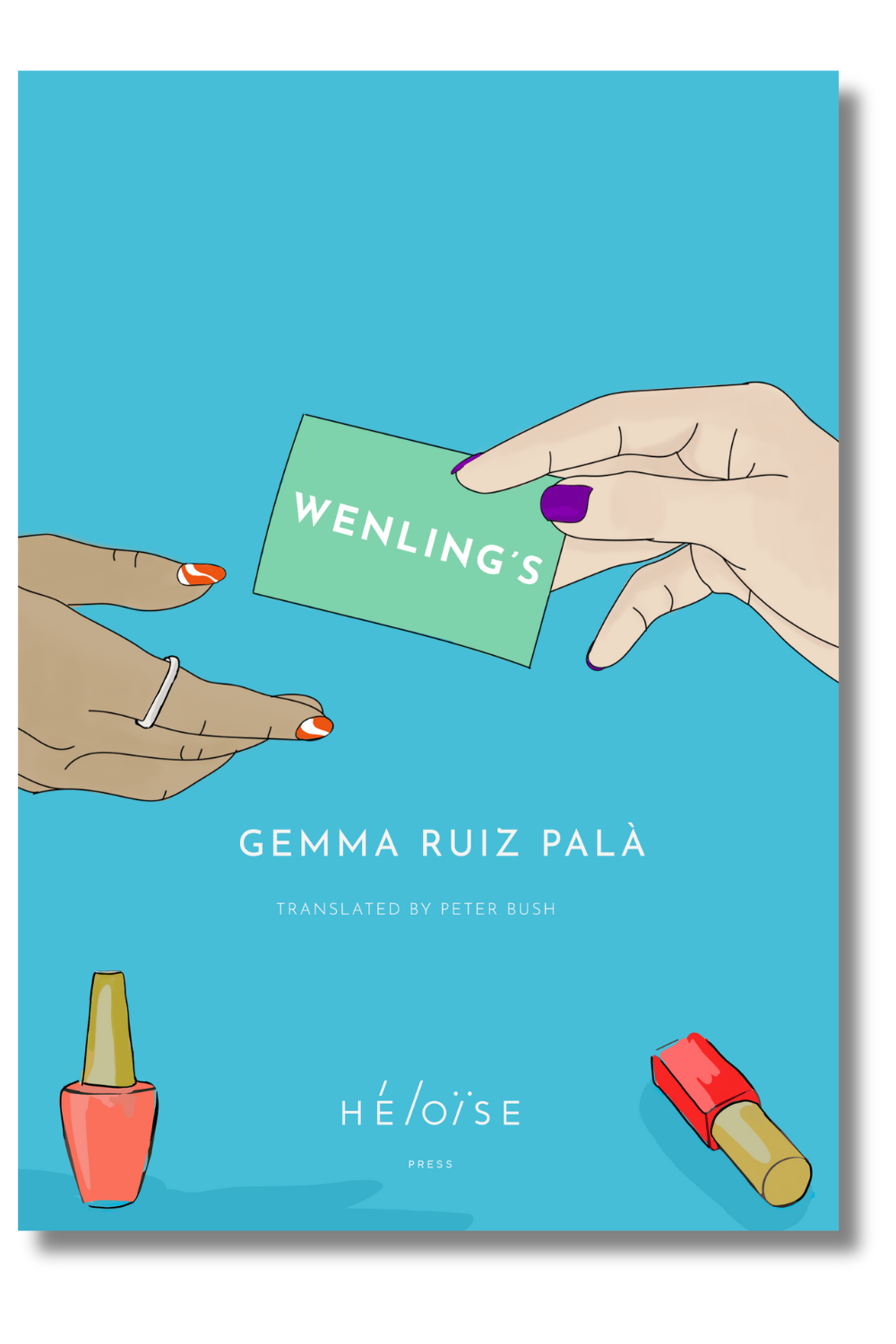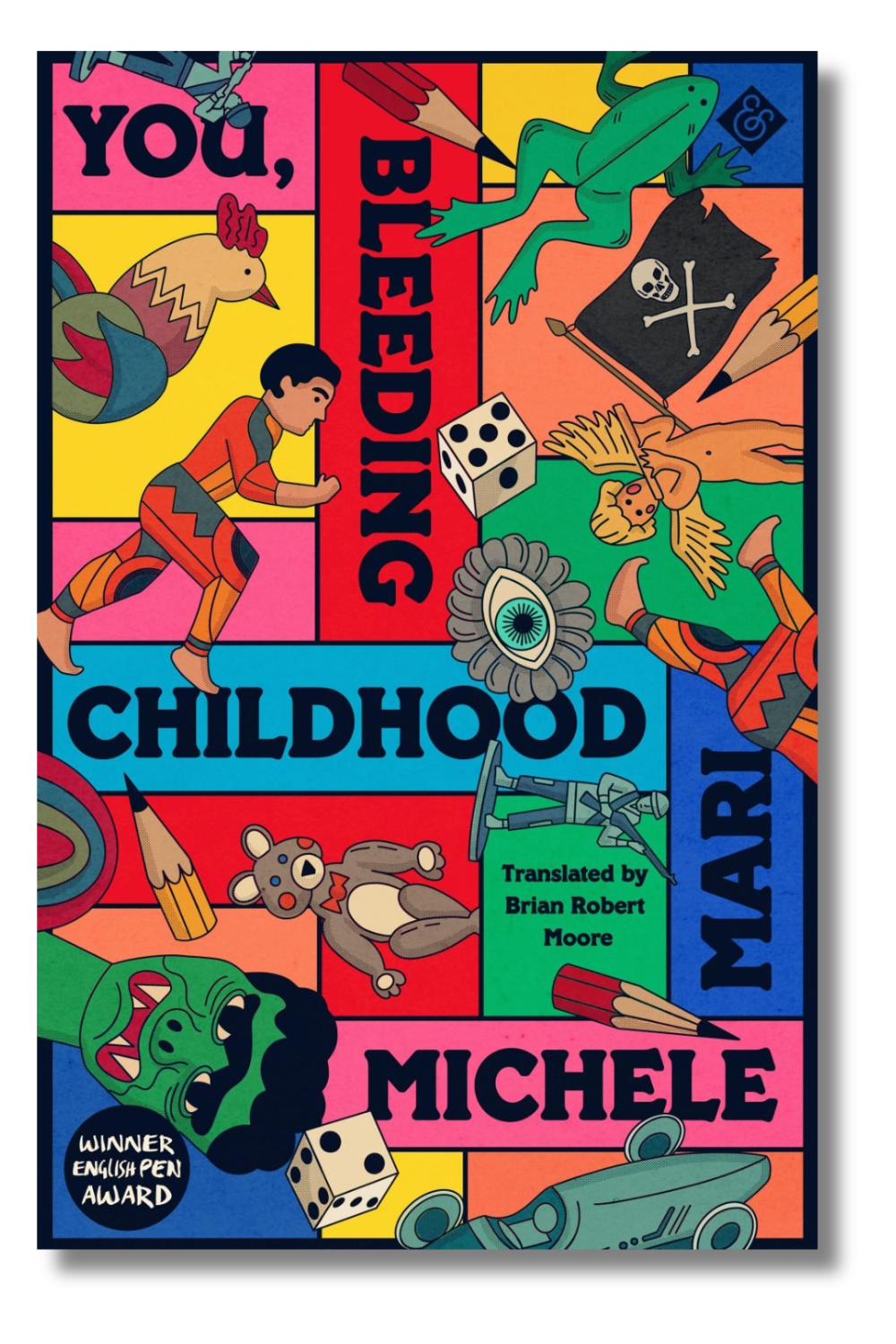From Archipelago Books | A Practical Guide to Levitation by José Eduardo Agualusa, translated from the Portuguese by Daniel Hahn | Fiction | 256 pages | ISBN 9781953861627 | US$22.00
What the publisher says: “On the sands of Itamaracá, an old fisherman dreams of fish: shad in the morning, when the water’s smooth and silvery, the Atlantic tarpon after it rains, and a jack when the sea goes blue. Elsewhere, Borges sulks away in a plantation of never-ending banana trees, and the president of the United States wakes from a coma speaking only Portuguese.”
What Anderson Tepper at World Literature Today says: “This month, Agualusa will publish a new collection of stories, A Practical Guide to Levitation. Like his last two books, it is published by Archipelago Books; and like all his English-language works, it is translated by Daniel Hahn. What a joy, for me, to reencounter Agualusa’s fictional universe—a world of talking lizards and enchanted trees, exiles and eccentrics . . .”
What I say: When a collection opens with a story called “Borges in Hell,” you might expect to have an idea of the book’s contents. And yes, this does begin with a tale of a certain influential writer realizing that he is in the wrong afterlife—establishing concepts of metaphysics, surrealism, and literary history that run throughout the book. But these stories also vary dramatically in tone, from stark realism to trips into the satirical uncanny. It’s a memorable showcase of one writer’s range.
Read an excerpt of A Practical Guide to Levitation on WWB.
From City Lights | Lojman by Ebru Ojen, translated from the Turkish by Aron Aji and Selin Gökçesu | Fiction | 144 pages | ISBN 9780872868984 | US$15.95
What the publisher says: “In short, propulsive chapters, Lojman spins a domestic drama crystallized through the family’s mental and physical claustrophobia. Vivid daydreams morph with cold realities, and as the family’s descent reaches its nadir, their world is transformed into a surreal, gelatinous prison from which there is no escape.”
What Publishers Weekly says: “Selma, forty-two, gives birth at home in the lojman, the teacher’s house at the edge of a remote village, in front of her children, teenage Görkem and the younger Murat. Selma’s husband, Metin, has left the house after an argument and hasn’t returned, and as winter storms keep the village cut off from the outside world, the family begins to come undone.”
What I say: Lojman opens with some of the most unsettling descriptions of ducks you’re likely to encounter and gets more and more taut from there. “We cannot trust winter,” the narrator writes early in the novel, via Aron Aji and Selin Gökçesu’s translation. “Nature, although it allows for happy accidents, insists on disasters.” This is a novel in which fraught interpersonal dynamics overlap with an increasingly inhospitable setting, a slow burn that leads to a haunting resolution.
From NYRB Poets | Firebird by Zuzanna Ginczanka, translated from the Polish by Alissa Valles | Poetry | 80 pages | ISBN 9781681377308 | US$14.95
What the publisher says: “Ginczanka’s linguistic exuberance and invention—reminiscent now of Tsvetaeva, now of Marianne Moore or Mina Loy—are as exhilarating as the passionate fusion of the physical world and the world of ideas she advocated in the single collection published during her lifetime, On Centaurs.”
What Poetry Foundation says: “Ginczanka wrote her earliest poems at age four and started publishing at fourteen. In 1936, she released her first and only book, On Centaurs, which was widely acclaimed. She was arrested in Kraków in 1944 and killed by the Gestapo no more than a few days before the Soviets liberated the city on January 18, 1945.”
What I say: The introduction to Firebird, written by translator Alissa Valles, does a fantastic job of situating Zuzanna Ginczanka’s poetry in both a literary and a historical context—and creating a tremendous sense of the loss to both that stems from Ginczanka’s 1945 murder. And the poetry here encompasses a vast range, from terse and searing to these evocative lines from “Grammar”: “Adjectives stretch out like cats / and like cats are made for caresses / soft cats warm and zaftig purr a tender andante and maesto.”
 From HarperVia | The Details by Ia Genberg, translated from the Swedish by Kira Josefsson | Fiction | 144 pages | ISBN 9780063309715 | US$22.99
From HarperVia | The Details by Ia Genberg, translated from the Swedish by Kira Josefsson | Fiction | 144 pages | ISBN 9780063309715 | US$22.99
What the publisher says: “The Details is a novel built around four portraits; the small details that, pieced together, comprise a life. Can a loved one really disappear? Who is the real subject of the portrait, the person being painted or the one holding the brush? Do we fully become ourselves through our connections to others? This exhilarating, provocative tale raises profound questions about the nature of relationships, and how we tell our stories. The result is an intimate and illuminating study of what it means to be human.”
What Eliza Smith at Literary Hub says: “It’s difficult to describe the experience of reading Ia Genberg’s English-language debut (winner of the August Prize, Sweden’s most prestigious book award) beyond saying that it resembles a fever dream—which is appropriate, given that the narrator herself is in bed with a rising fever, as she recalls four important people from her past: Johanna, an ex-girlfriend, now famous; Niki, a friend who disappeared; Alejandro, a former lover; and Birgitte, her daughter.”
What I say: If there’s a running theme for this month’s Watchlist, it might have to do with fiction about bibliophiles. A Practical Guide to Levitation and You, Bleeding Childhood both abound with allusions to influential and iconic writers and their work, and The Details includes (among other elements) a heated discussion of the works of Paul Auster. The sense of a particular place and time that comes from alluding to such a writer is in keeping with the mood of this novel, which includes both lived-in details and the vagaries of memory. There’s also an air of melancholy at times, as suggested by lines like this: “There was a time when people who disappeared were hard to find.”
From Héloïse Press | Wenling’s by Gemma Ruiz-Palà, translated from the Catalan by Peter Bush | Fiction | 268 pages | UK£12.95
What the publisher says: “Originally from China, Wenling arrived in Barcelona looking for a better life. With no knowledge of the local languages, she managed to open a salon. Our unnamed narrator is one of Wenling’s frequent customers, a documentary producer who takes note of everything and everyone around her. As time passes by, a friendship grows between the two women. Through their conversations, Wenling’s story unfolds at the salon, where we also discover the hidden lives of many of her customers.”
What Alice Banks at European Literature Network says: “Our protagonist is Wenling, a Chinese immigrant who arrived in Barcelona six months pregnant and looking for a better life. Despite having no knowledge of the local languages, she manages to open a salon. A female space par excellence, it becomes the crossroad for many women’s stories, including Wenling’s, that have remained silenced. Intertwining journalistic precision with the casual tone of joyful conversation, Gemma Ruiz Palà immerses the reader in a story of gender, migration, and friendship.”
What I say: In a translator’s note, Peter Bush writes, “Barcelona is a multilingual city where many people speak Catalan and Spanish and other languages with different degrees of fluency depending on age, origin, and social situation.” Wenling’s makes that clear in both form and execution; in this novel that brims with voices, interwoven stories make the case for Barcelona’s multiculturalism—and show how a modest establishment such as the salon that gives this novel its title can reveal resonant details of a city’s character.
From And Other Stories | You, Bleeding Childhood by Michele Mari, translated from the Italian by Brian Robert Moore | Fiction | 128 pages | ISBN 9781913505684 | US$17.95
What the publisher says: “Raised on comic books and science fiction, the young Mari constructed an alternate universe for himself untouched by uncomprehending grown-ups or sadistic peers. Compared to the horrors of real life, Long John Silver and Cthulhu made for positively cuddly company; but little boys raised by beasts may well grow up beastly—or never grow up at all.”
What Kirkus Reviews says: “The son of a domineering industrial designer and a children’s book illustrator, Mari has been compared to Kafka and Borges for his unnerving yet humorous excavations of the psyche in which the pulpy influence of speculative fiction and pop art surfaces and glistens. [. . . ] Amusing, disturbing, intoxicating tales of childhood terrors and obsessions.”
What I say: Told in a fragmentary style, this book at times reads like an annotated bookcase used to recount a variety of stories. (This is meant as a compliment.) The narrator of “The Black Arrow” declares at one point, “For an entire day, in the library of my grandparents’ house in the country, I had stalled over choosing a book.” For a certain reader, I suspect, this painstaking search for the ideal book might be all too relatable. In “The Covers of Urania,” this book’s themes of reading, childhood, and family converge with a lived-in penchant for detail—and a precise knowledge of a period in science fictional history.
Facts and Figures, August 2023 Division
- Number of books that reference Siri Hustvedt this month: two. (Wenling’s and The Details)
- Most unsettling comparison involving ducks: “As the endless crying grew louder, the wounded mallard sitting in the middle of the living room trembled in agitation. Selma was no different from the mallard.” (From Lojman)
- Number of books that will make you wary of lizards: one. (A Practical Guide to Levitation)
Looking for more reading suggestions? Check out Tobias Carroll’s recommendations from last month.
Disclosure: Words Without Borders is an affiliate of Bookshop.org and will earn a commission if you use the links above to make a purchase.
Copyright © 2023 by Tobias Carroll. All rights reserved.

















